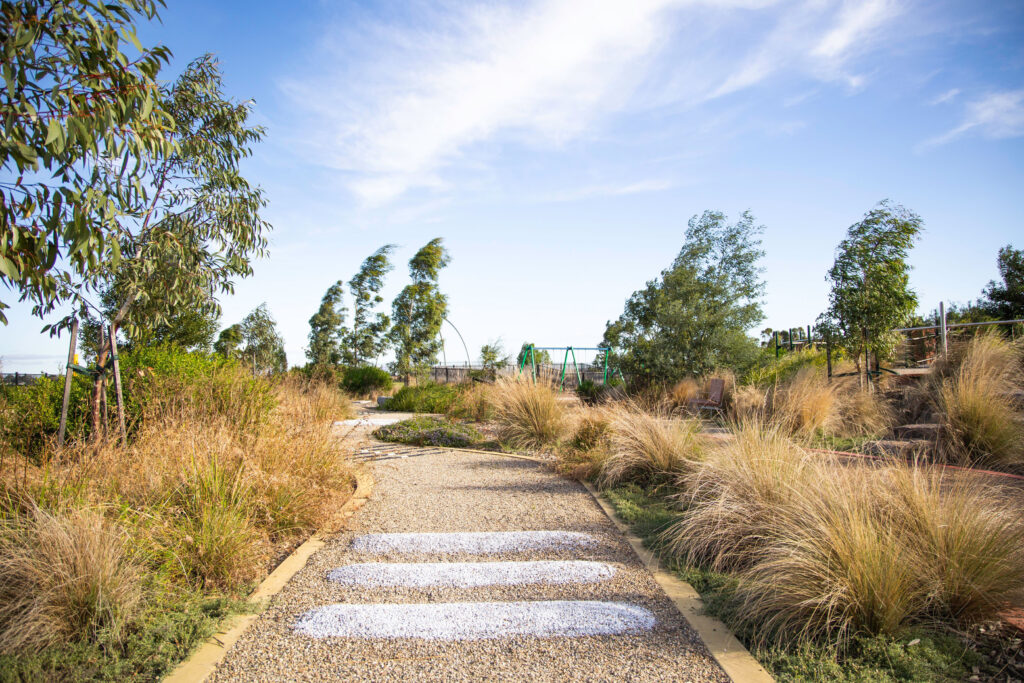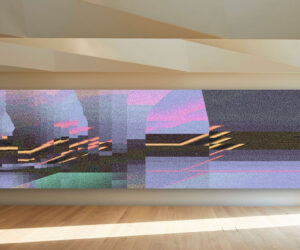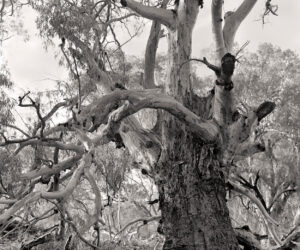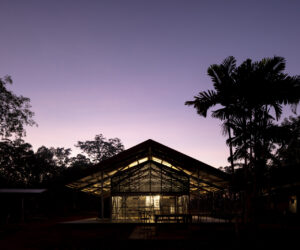National Landscape Architecture Award 2021 winners revealed
Australia’s best new landscape architecture projects are building back cities and towns through the revival of public and private outdoor spaces.
Australian Institute of Landscape Architecture (AILA) recognised 47 projects across 17 different categories as part of the 2021 National Landscape Architecture Awards on Thursday 14 October.
Winners were recognised for displaying an effort to facilitate environmental stewardship while striving for cultural sustainability, particularly in the Gardens, Health and Education Landscape, Parks and Play Spaces categories.
AILA President Claire Martin said the past 18 months had highlighted the strengths and vulnerabilities of our cities, stressing the need for our public spaces to deliver fundamental social, environmental, and economic change.
“This year’s diverse award entrants demonstrate the leading role that landscape architects play in delivering innovative responses to complex issues and making positive contributions to our regions and cities,” Ms Martin said.
“Despite all the challenges the pandemic delivered, it presents a great opportunity for the industry to re-evaluate how we use these spaces.
“The variety of submissions illustrates the passion and drive of our AILA members to influence the way we work, live and play.
“These projects set new benchmarks as we continue to build knowledge as a profession,” she said.
AILA National Jury Char, Peta-Maree Ashford said the Awards Jury applauded this year’s winners for focusing on community involvement and the growing use of localised public and private spaces.
“COVID, for the first time to such an extent, has encouraged communities to make the most of their own backyard, whether that be their physical home, local park or community garden,” Ms Ashford said.
“Growing use of these spaces means there is undoubtably a need for thoughtfully landscaped, high-quality spaces that locals are genuinely excited to use.
“Green spaces add this irrefutable value in strengthening community connectedness and maintaining mental and physical wellbeing,” she said.
Three projects received awards in the Parks and Open Space category, recognised for their consideration of community in all aspects of design.
Queensland project, Riverside Green – South Bank Parklands by Hassell took home the Award of Excellence, while Western Australia project Bina Parkland and Victoria project Tullamore Southern Gully Reserve received Landscape Architecture Awards.
Equally so, winners in the Play Spaces category were noted for encouraging meaningful play and creative stimulation through design.
Victoria project Deep Creek Eco Play by Playce Pty Ltd with Agency of Sculpture received the Award of Excellence for connecting sensory and tactile aspects of landscape in a fun and extremely playful way.
Landscape Architecture Award winners included the Bradbury Park Scooter Track by Form Landscape Architects and Brisbane City Council, and New South Wales project The Sales Ring Playground by Arcadia Landscape Architecture.
This year’s awards also saw the reimagination of the Gardens category, with projects not traditionally associated with this category being considered.
Exemplary of this was Western Australia project Coogee Common by Seedesign Studio, which took out the Landscape Architecture Award in the Gardens category for its productive food garden, which has provided fresh supplies for the new bar and restaurant of the historic Coogee hotel.
South Australia project Salt Wind Garden by Oxigen also received a Landscape Architecture Award in Gardens, recognised for its deep connection to landscape and imperative to bring nature back into residential gardens.
In the current climate, health and education landscapes continue to shape Australia’s cities and regional towns, with four project taking home awards in this category.
Notably, the Surgical, Treatment and Rehabilitation Service (STARS) and Public Realm, Herston Quarter was acknowledged with an Award of Excellence for a brave design that relives the sense of patients and media workers.
In what has been a challenging year for the service sector, Tasmania’s Cradle Mountain Visitor Centre received the Tourism Landscape Architecture Award for providing an outstanding visitor experience to one of Tasmania’s most valued natural wilderness destinations.
Ms Ashford said the standard of awarded work set an exciting precedent for build outcomes now and into the future.
“Demonstrating leadership and advocacy for approaches outside the norm, the award recipients have succeeded in enhancing local landscapes so that they are an impetus for greater wellbeing and shared understanding within the community.”
AILA’s National Awards program is presented as part of the Festival of Landscape Architecture: Spectacle and Collapse, being help in Perth and online from 13-16 October 2021.



